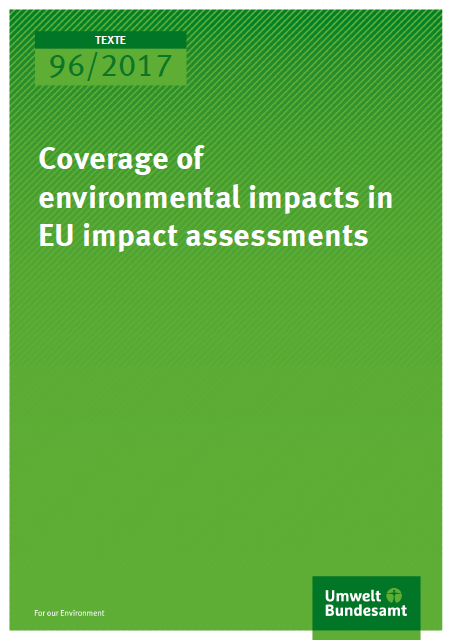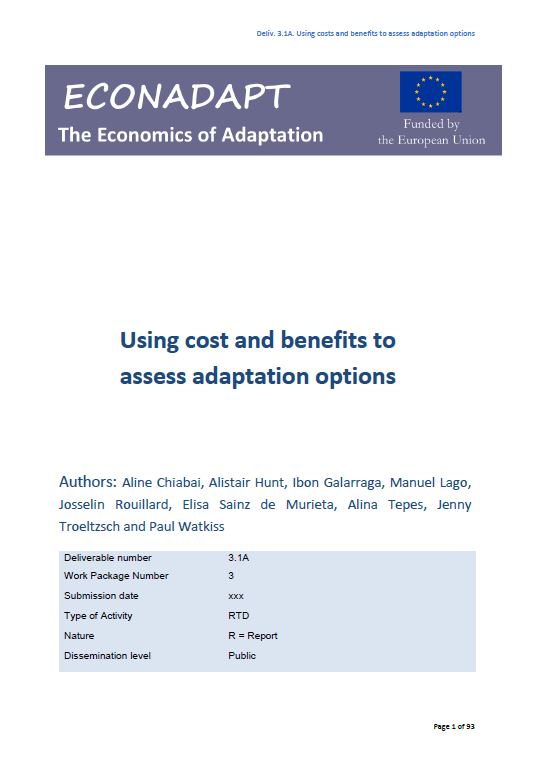Environmental laws and measures not only have impacts on the environment, but also induce different kinds of benefits and costs for citizens and the economy. For a comprehensive evaluation of the impacts of new policies and measures, both environmental and economic costs and benefits need to be analysed and, if appropriate, monetised.
This project developed an Excel tool that aims at supporting the user in this monetisation, e.g. when preparing a regulatory impact assessment or when calculating the compensation and capping amounts required by the so-called "One in one out" rule ("OIOO rule"). The outputs of this tool are complementary to the direct costs of policy measures calculated with the ERBEX tool of the Federal Statistical Office.
The tool provides users with output variables that follow the requirements of the OIOO rule. Depending on the impacts of policy measures, the environmental benefits or costs are calculated by the tool as "cap" or "compensation" according to the OIOO rule.
The tool essentially treats offsets for the economy as the OIOO category "capping". The tool can carry out benefit-cost assessments of environmental effects in the following categories:
- Air emissions (health, building and equipment damage, crop failures);
- Greenhouse gas emissions (assessment of the different damage costs for the private economy);
- Noise emissions (health, depreciation of real estate);
- Impairment of ecosystems (currently not monetised);
- Emissions of toxic substances (analogous to air emissions);
- Indirect environmental impacts of upstream and downstream processes (esp. in the fields of transport and energy – analogous calculation to air pollution and greenhouse gas emissions).
In summary, this tool can support the user by monetising the following environmental benefits or avoided environmental costs:
- Effects: Savings from the reduction of air pollution, greenhouse gases, noise, toxic emissions, accidents and diminished ecosystem damage;
- Capping: Decreased costs of environmental damage to the economy;
- Other costs and benefits: Reduced costs for citizens and the public sector.
- In addition to the avoided environmental costs, it is possible to quantify the economic effects with the tool. The methodology to calculate these economic effects uses input-output tables of the Federal Statistical Office:
- Direct effects on the value added for the economy as (additional or reduced) revenues by sector ("compensation");
- Indirect impact on the estimated value added for the economy that are value added inputs, avoided expenditures and changes in government spending by sectors ("capping");
- Other costs and benefits (taxes linked to production, employment, and social security contributions).
It should be emphasised that this tool does not enable a comprehensive cost-benefit analyses of environmental policies. This tool is a supporting tool for impact assessment and allows the monetisation of environmental effects in some key areas. Not all potential environmental effects can be covered and monetised while the calculated economic effects do not include interrelations and dynamic elements.
The tool provides text boxes that support the user in entering the relevant data and interpreting the outcome variables. This is the second version of the tool, and the first tool has been updated and enhanced in the following aspects:
- Updating the data sources of the tool;
- Implementing the additional impact category "accidents" (traffic);
- Improved user-friendliness through targeted user guidance, inter alia, by integrating help texts and interpretation guidance;
- Adjustments of output variables based on the OIOO rule.




